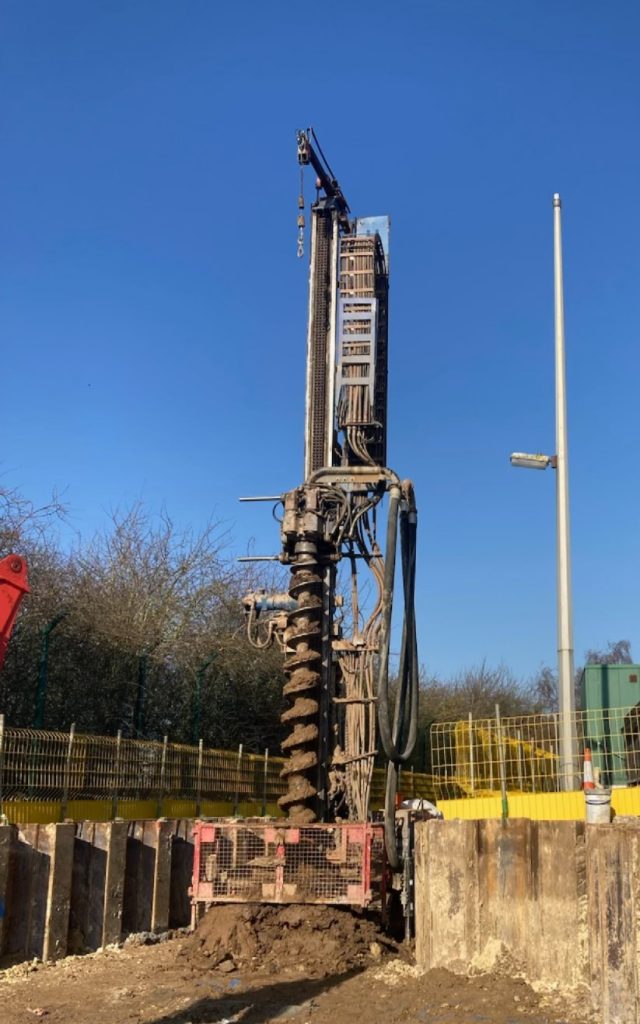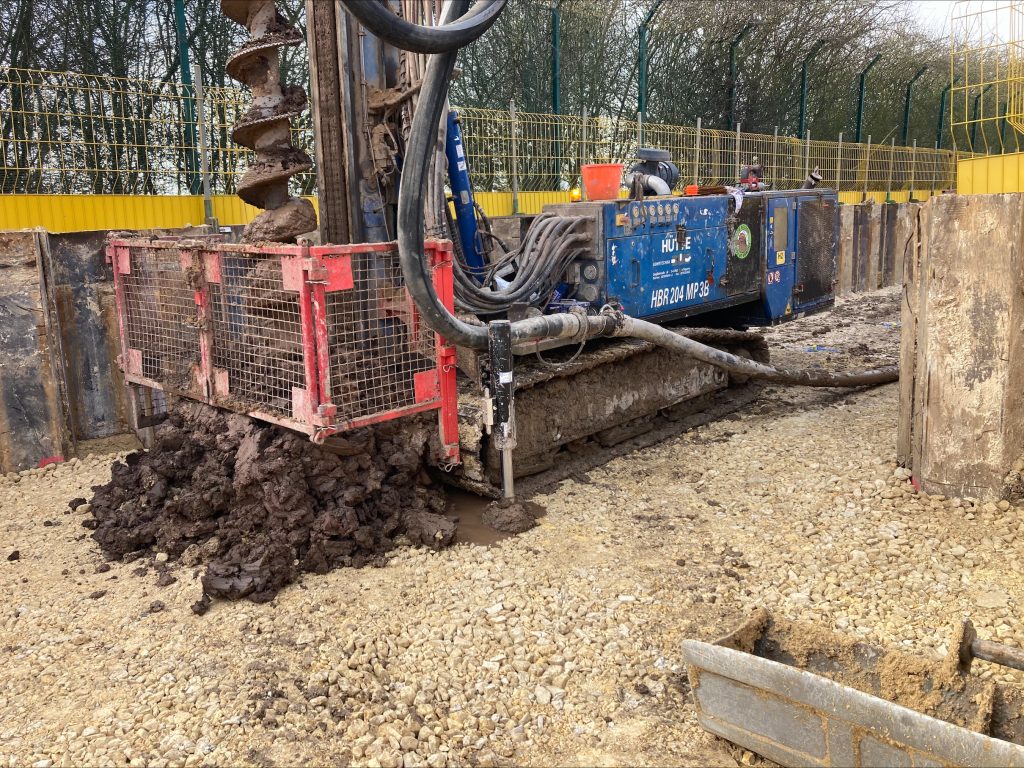PROJECT BRIEF
Roger Bullivant Limited (RBL) worked with Seymour Civil Engineering to deliver foundation support for a new storm tank to provide an additional 730m³ of storage at the Rawcliffe Sewage Treatment works for Yorkshire Water.
Storm tanks operate to slow the flow of wastewater and reduce the need for overflows into watercourses. By increasing the capacity, the use of storm overflows and their impact on the environment is reduced. The scheme formed part of a series of upgrades by Yorkshire Water with the aim of reducing storm overflow use and improving water quality in the region’s rivers.
RBL North East submitted a proposal to construct the new tank base using 88 No. Continuous Flight Auger (CFA) piles, each 450mm in diameter and extending to a depth of 9 metres.
KEY ISSUES
SOLUTION
- CFA Pile Installation from Excavation Base: Piles were installed from the base of a sheet-piled excavation approximately 2m deep. This approach eliminated the need for extensive excavation around completed piles and reduced pile cropping requirements, aligning with the client’s budget and programme constraints.
- Compact Rig Deployment: RBL utilised the Hütte 204 compact auger rig, chosen for its ability to manoeuvre within the tight confines of the excavation. Following completion of piling works, the rig was safely lifted from the excavation using a mobile crane.
- Pile Design Parameters: All piles were designed to support a maximum axial safe working load (SWL) of 600kN, with a factor of safety of 3, ensuring structural reliability across variable ground conditions.
- Static Load Testing: A static load test was conducted on a sacrificial test pile to confirm compliance with design assumptions. The test reached a peak load of 900kN, with maximum settlement recorded at approximately 8mm, validating the design and satisfying project specifications.
- The RBL team successfully delivered a value-engineered CFA piling solution at the Rawcliffe Wastewater Treatment Facility, overcoming restricted access, complex ground conditions, and deep excavation requirements. By installing piles from the base of a sheet-piled excavation using a compact rig, RBL minimised excavation works, reduced pile cropping, and accelerated programme delivery. The works were completed safely, ahead of schedule, and fully validated through static load testing, demonstrating compliance with all design and performance criteria.



